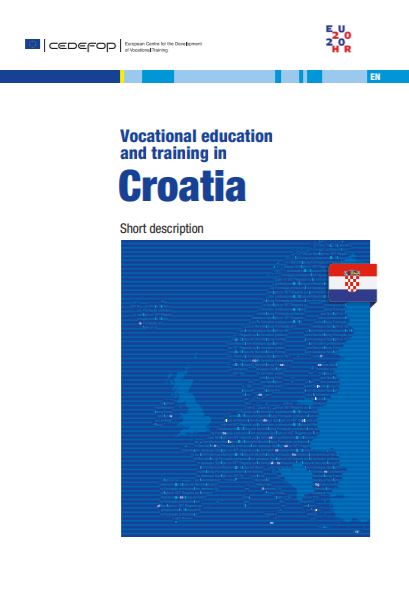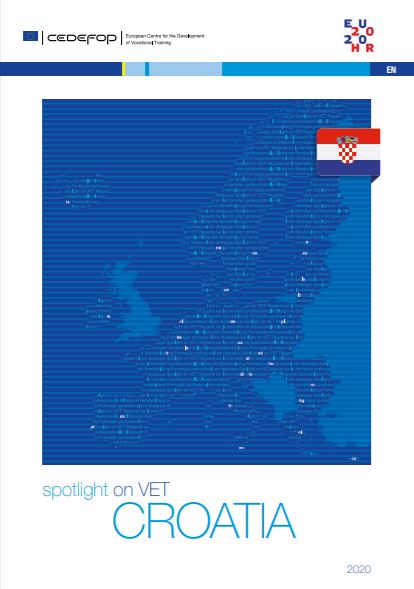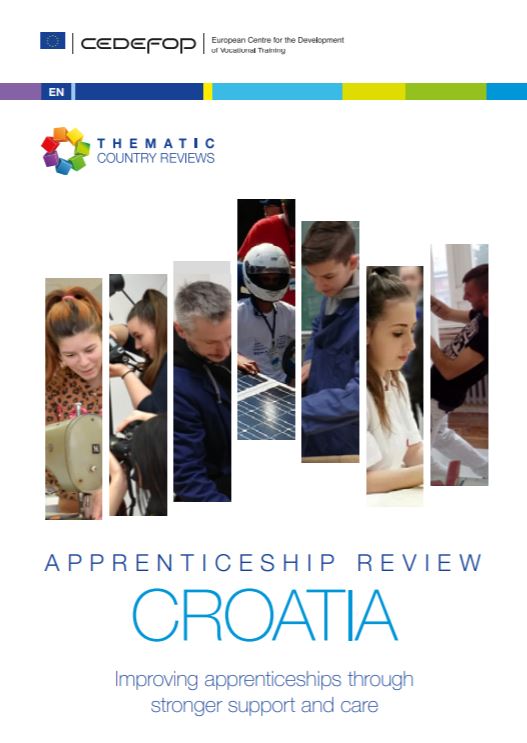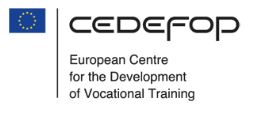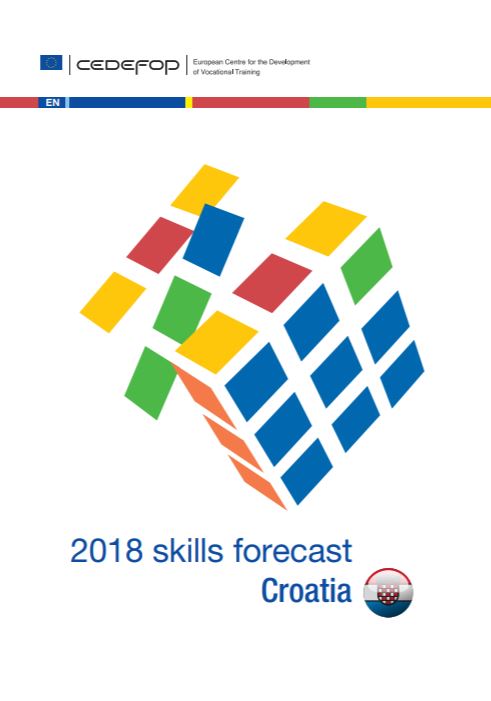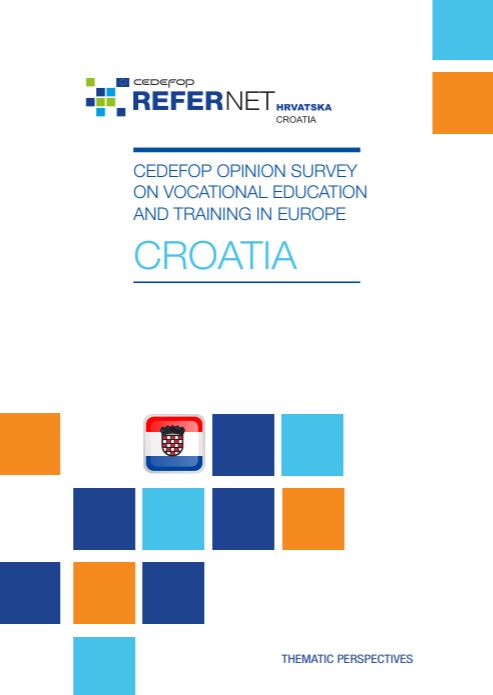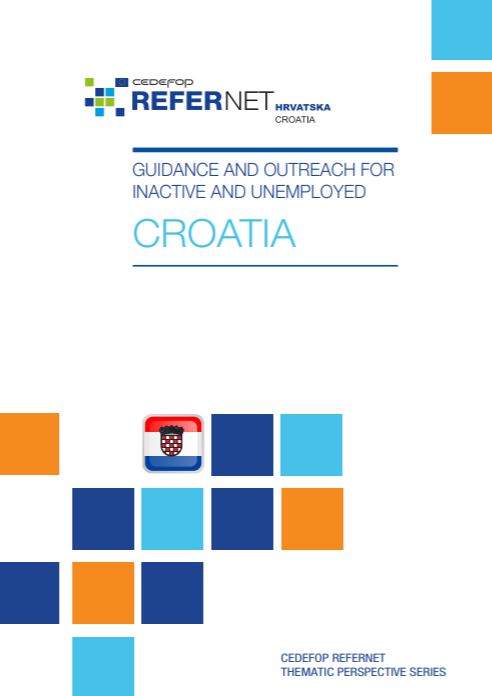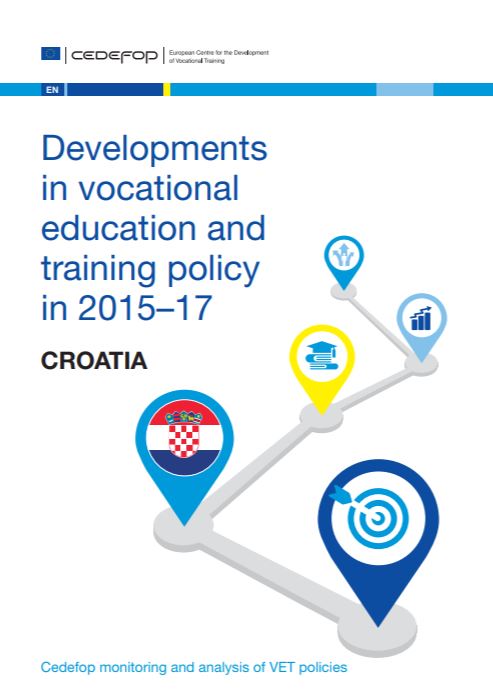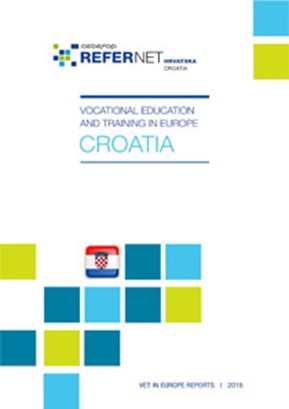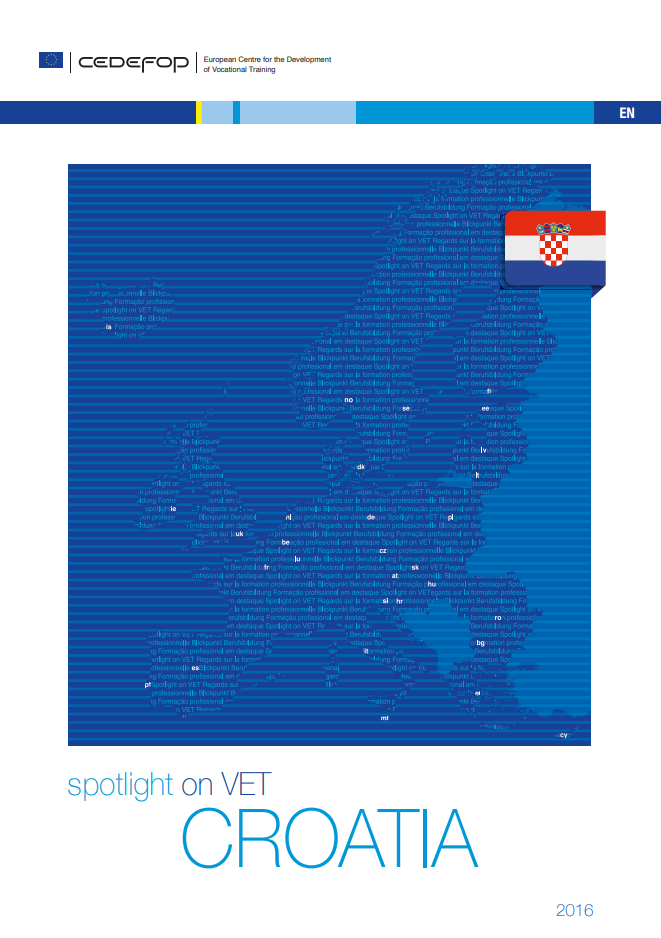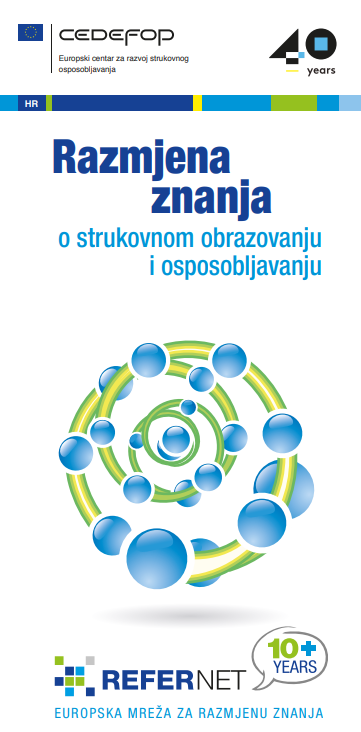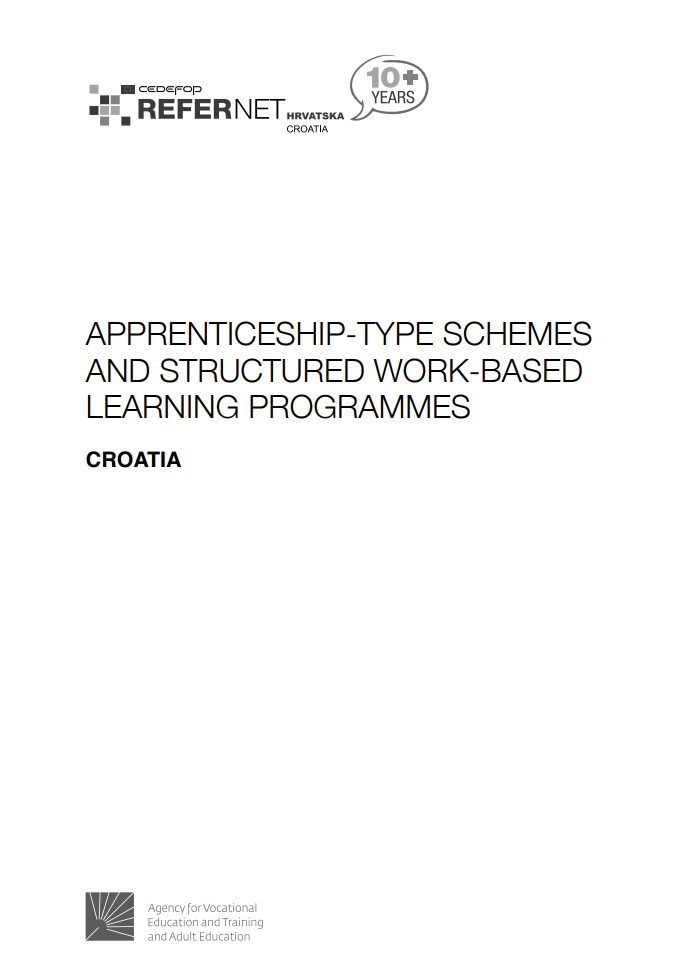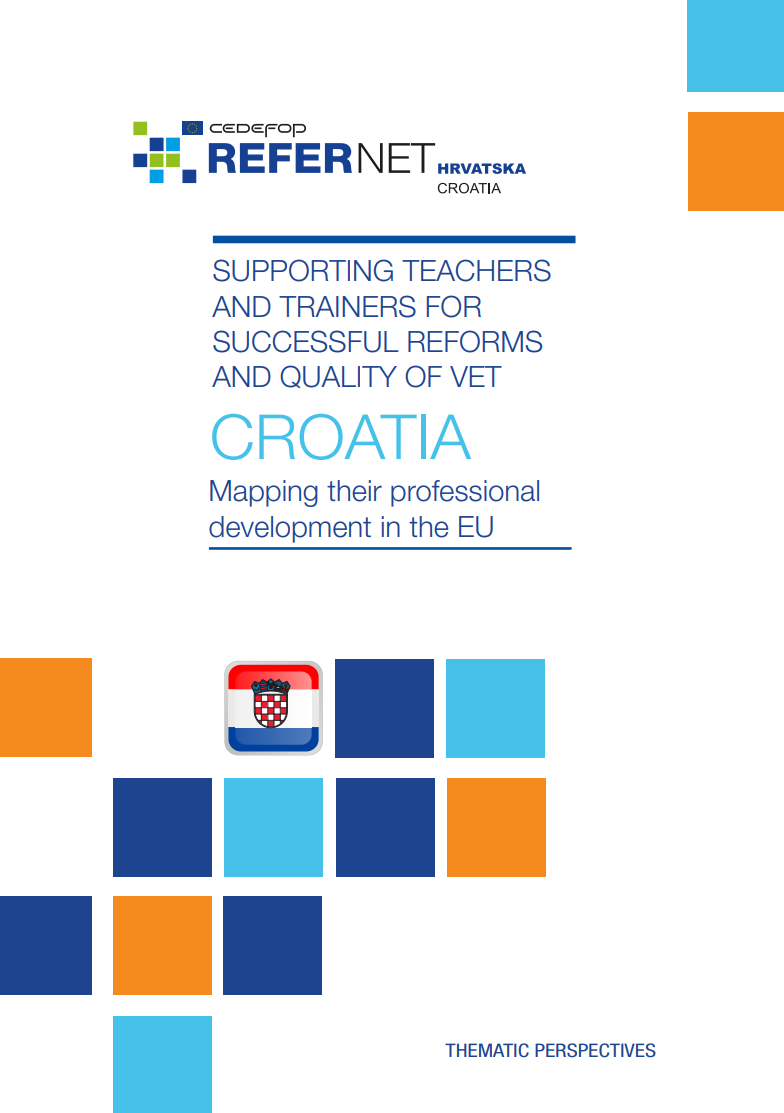Short description
This short description contributes to a better understanding of vocational education and training (VET) in Croatia by providing insights into its main features and highlighting system developments and current challenges in recent years. The Croatian presidency of the Council of the EU in the first half of 2020 focuses on teachers and trainers who are at the heart of all developmental and reform processes, as promoters and enablers of the new skills needed for the future.
Croatia
Vocational education and training (VET) plays a prominent role in Croatia. Overall responsibility for VET lies with the Ministry of Science and Education supported by the Agency for VET and Adult Education (ASOO). Cedefop's brief guide provides all the information you need on Croatia's VET system in a concise manner.
Focus on long-term mobility: Croatia
The article discusses the enablers and the disablers for long-term international mobility of apprentices in Croatia, both inbound and outbound. In particular, the article analyses different aspects of exogenous factors influencing the mobility of apprentices at the upper secondary level, the link between the apprenticeship scheme design and the apprentices’ mobility, as well as lessons learnt from the existing policies and initiatives of apprentices’ mobility.
Country report: Croatia
Since 2013, when the Act on the Croatian Qualification Framework (CROQF) was
established, validation is being incorporated in many strategic documents which
would imply that on a system level, validation has gained in significance. The
developments in the last five years are slowly, but steadily, setting the scene for the
development of the validation framework.
Improving apprenticeships through stronger support and care
This publication is the final report of Cedefop’s thematic country review of apprenticeship in Croatia. The review took place between January 2017 and June 2018 at the request of the Ministry of Science and Education of Croatia. It examined the unified model of education (jedinstveni model obrazovanja) three-year programmes for trades and crafts (CROQF level 4.1). The report presents key findings and suggestions for action to improve and further develop the model in line with the curriculum reform and labour market needs.
Croatia - European inventory on NQF 2018
Cedefop’s forecasts use harmonised international data and a common methodological approach allowing cross-country comparisons about employment trends in sectors, occupations and qualifications. The latest round of forecasts covers the period up to 2030.
National article analysing the results of the Opinion survey on vocational education and training in Europe. Launched in 2016 by Cedefop, the Opinion survey provides data on European citizens’ opinions on awareness, attractiveness and effectiveness of vocational education and training in Europe.
The national reports developed by ReferNet partners reflect efforts done by
Member States to reach vulnerable groups affected by unemployment and
inactivity and help them reengage in learning and employment. The reports refer,
in particular, to measures which may include young adults not in employment,
education or training (NEET) and adults undergoing long term unemployment
(LTU), given their persistence in many countries and the high challenges these
groups face.
Cedefop monitoring and analysis of VET policies in Croatia from 2015-17
Croatia
This VET in Europe report is part of a series prepared by Cedefop’s ReferNet network. VET in Europe reports provide an overview of national vocational education and training (VET) systems of the EU Member States, Iceland and Norway.
VET in Croatia
Vocational education and training (VET) plays a major role in Croatia. Overall responsibility for VET lies with the Ministry of Science and Education supported by the Agency for VET and Adult Education (ASOO). The agency is responsible for developing VET curricula, continuous professional development of VET teachers, skills competitions and quality assurance.
Europska mreža za razmjenu znanja
ReferNet-ov rad na prikupljanju i praćenju EN informacija o nacionalnom strukovnom obrazovanju i osposobljavanju provodi se na raznovrsne načine...
Croatia
Croatia is a parliamentary democracy and is organised as a unitary republic since 1991, when it declared its independence. The political system of Croatia is based on the principle of the division of power between the legislative, executive and judicial branches.
Croatia
In Croatian Vocational Education and Training system there is an apprenticeship scheme that is implemented from the school year 2004-2005 and only in three-year vocational education and training program for crafts, commonly known as Unified Model of Education (UME).
Croatia
VET system in Republic of Croatia has been going through many changes, modernisations and innovations in last several years. Agency for VET and Adult Education (AVETAE) with support of the Ministry of Science, Education and Sport (MoSES) initiated these processes.
Croatia
In 2014, 70.7% of the secondary education students were in vocational education and training (VET). VET prepares for the labour market, enables progression to tertiary education and supports personal development of learners, as they enrol at young age (14 or 15).
Mapping their professional development in the EU
In the Republic of Croatia 70.7% of the regular secondary school students (ISCED 344, 351, 353 and 354) in 2014 were enrolled in vocational education and training (VET) programmes which prepare the students for inclusion into the labour market and enable them access to further and/or higher education.

